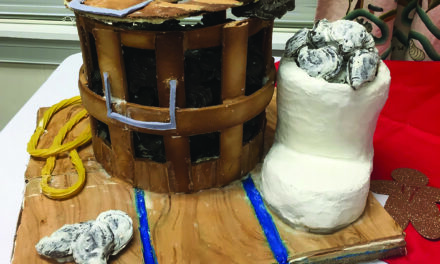Green thumbs a good Rx for patients?
Dr. Wendy Demark-Wahnefried, a registered dietician and associate director for cancer prevention and control at the University of Alabama at Birmingham’s Comprehensive Cancer Center, developed Harvest for Health.
The program initially posed one simple question: If cancer survivors started a vegetable garden in their own yard, would they eat more vegetables?
To find out, in 2011 she paired 12 adult and child cancer survivors in Jefferson County, Ala., with Master Gardeners. She measured how cancer survivors responded to the intervention — how it affected their diet and exercise behaviors, health related quality of life, and other factors.
Demark-Wahnefried said that although many studies show links between diet or physical activity and cancer, little is known about how gardening met these requirements.
Throughout the yearlong pilot study, the survivor–Master Gardener teams planned and planted three gardens for fall, spring and summer. They harvested and rotated each one, troubleshooting problems. After the study year, 40 percent of participants were eating at least one fruit and vegetable serving per day.
Demark-Wahnefried said although increasing fruit and vegetable consumption was the focus, subjects also improved their exercise level. Their physical functioning improved dramatically. “Once the garden drew them outside, they were doing a lot of things around the yard, and maybe taking a walk, and other activities,” she said. “As a result, the benefit that made this intervention very compelling is their improved physical function.”
Sixty percent of participants engaged in at least 30 minutes of physical activity each week.
All improved in three of four objective measures of strength, agility, and endurance.
Demark-Wahnefried said better diet and increased physical function are means to an end — to keep cancer survivors living independently for as long as possible.
“Loss of physical function in cancer survivors, especially older survivors, is a downward spiral, so that many times survivors lose the ability to live on their own,” she said. “Improving that ability to live independently is a big outcome for us.”
Another outcome from the project is an overall improvement in the survivor’s outlook on life.
“As scientists, it is diffcult to measure intangible benefits; but this program seems to be contributing to improved quality of life and self-esteem — helping to produce a sense of peace in the survivors who participate,” Demark-Wahnefried said.
After the pilot study, 46 cancer survivors participated in a follow-up study.




